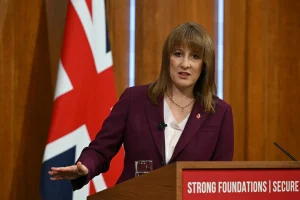The effectiveness of UK sanctions will be undermined unless the UK can quickly agree arrangements for future sanctions policy co-operation with the EU. Without this, the UK could be left with the choice of imposing ineffective unilateral sanctions or aligning with EU sanctions it has no influence over.
This is the main conclusion of the House of Lords EU External Affairs Sub-Committee’s Brexit: sanctions policy report, published last week.
Other report findings and recommendations include:
- EU sanctions regimes have a significant impact where agreement cannot be reached at the UN, or agreed UN measures are limited in scope. For example, earlier in the year UN Permanent Security Council members Russia and China vetoed UN sanctions over chemical weapons in Syria.
- After Brexit, the UK will be able to unilaterally impose sanctions, but they are most effective when imposed at the same time as other countries.
- The principal interests and threats facing the UK and the EU-27 will not change fundamentally when the UK leaves the EU.
- One of the options the UK has is to align itself with EU sanctions after Brexit. This would preserve the current unity of approach by the 28 countries, but would require the UK to implement decisions it has no influence or voting rights over.
- The Committee welcomes the Government’s intention to continue to work in close partnership with the EU and other international partners after Brexit, but notes that the Government’s proposed “tailored” and “unprecedented” approach to UK-EU collaboration on sanctions policy is untested.
- The UK should pursue informal engagement, as the US does, with the EU on sanctions. However, this is not a substitute for the influence it currently exercises through formal inclusion in the EU meetings where the bloc's sanctions policy is agreed.
- If the UK does not participate in the Common Foreign and Security Policy after Brexit, the Government should establish a political forum with the EU, for regular discussion and co-ordination of sanctions policy.
- How businesses operating in the UK are affected will depend on how closely the UK continues to align with the EU’s restrictive measures. Divergence from this could lead to additional administrative burdens for businesses.
Commenting on the report, Lord Horam, Spokesperson for the EU External Affairs Sub-Committee, said: “Sanctions are most effective when imposed in concert with international partners. We need swift agreement on how the UK and the EU will work together on sanctions policy after we have left the bloc—and consideration of how wider foreign policy co-operation will be framed. It is not yet clear what the Government’s proposed ‘tailored arrangement’ with the EU on sanctions policy would involve. If we don’t agree on a formal mechanism for co-operation, we will have an unappealing choice to make between imposing less effective unilateral sanctions, or aligning with more effective EU sanctions, the design of which we have not influenced.”
The Brexit: sanctions policy report considers the UK's current sanctions regime - as a member of the EU - and its options for designing an autonomous regime and collaborating with the EU and other international partners after Brexit. It focuses on sanctions policy - the process of designing measures to achieve the UK's foreign policy and national security goals.
(Source: House of Lords)





















